
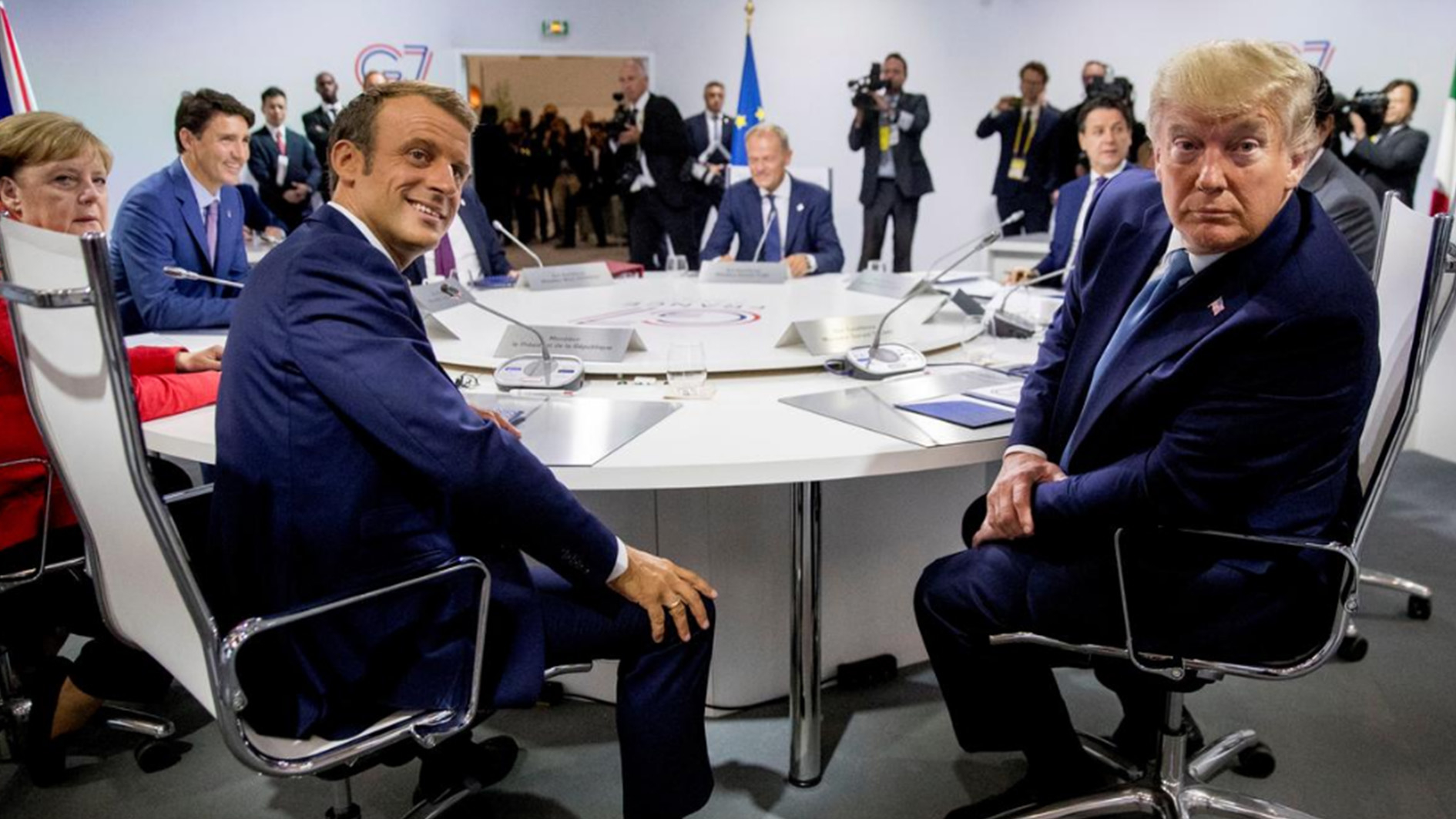
French President Emmanuel Macron said on Sunday that G7 agreed on joint action on Iran with the aim of defusing tensions and opening a new negotiation with Tehran, as leaders from the world's seven most industrialized countries met at the French seaside resort Biarritz for the group's 45th summit.
The French presidency said Macron and his guests – Angela Merkel (Germany), Boris Johnson (Britain), Justin Trudeau (Canada), Giuseppe Conte (Italy), Shinzo Abe (Japan) and Donald Trump (the U.S.) – had even agreed that Macron should hold talks and pass on messages to Iran, after they discussed the issue over dinner on Saturday evening.
"There is a message from the G7 on our objectives and the fact that we share them is important, which avoids divisions that in the end weaken everybody," Macron told LCI television.
"Everyone wants to avoid a conflict, Donald Trump was extremely clear on that point," the French President said.
"We have to continue to take initiatives and in the coming weeks that on the one hand there are no more Iranian decisions that contradict this objective and that we open new negotiations."
Iran's foreign minister Mohammad Javad Zarif arrived in Biarritz on Sunday, and is in talks with his French counterpart Jean-Yves Le Drian.
"Zarif will convey the Iranian leadership's response to French President Emmanuel Macron's proposal that is aimed to save Iran's 2015 nuclear deal," a senior Iranian official said.
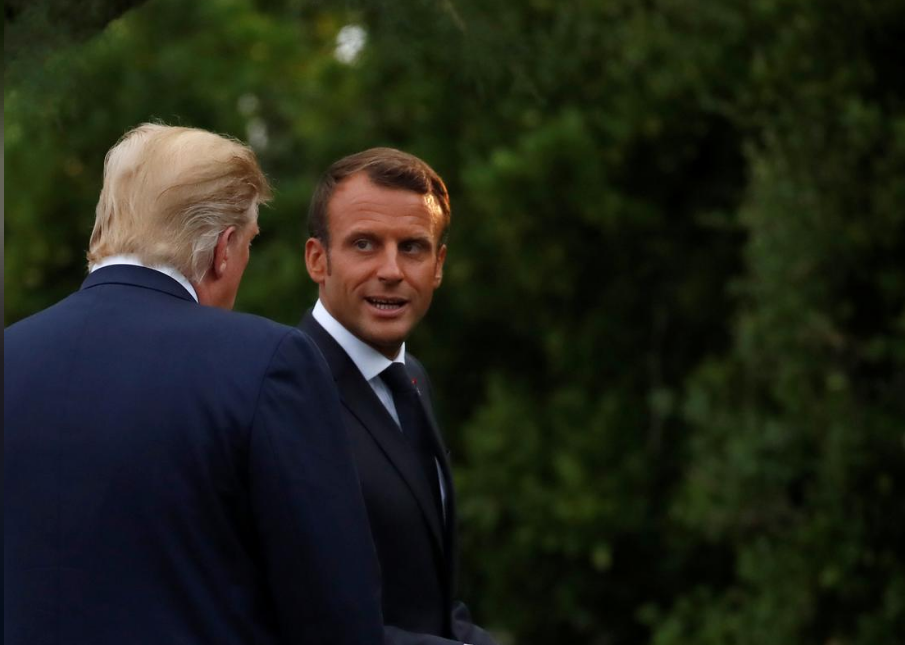
French President Emmanuel Macron welcomes U.S. President Donald Trump at the G7 summit in Biarritz, France, August 24, 2019. /Reuters Photo
France, Japan to take initiatives on Iran
Macron appeared to backtrack on his own team's comments, later saying there was no formal mandate from the G7 leaders to pass a message to Iran, but he would continue to hold talks with Tehran in the coming weeks to defuse tensions.
Highlighting just how difficult agreeing on concrete measures between allies is, Macron said the leaders' views had converged on not wanting Iran to acquire a nuclear bomb and ensuring peace and security in the Middle East.
"We had a discussion yesterday on Iran and that enabled us to establish two common lines: No member of the G7 wants Iran to get a nuclear bomb and all the members of the G7 are deeply attached to stability and peace in the region," Macron said, adding that both he and Japanese Prime Minister Shinzo Abe had taken initiatives on Iran.
"But there is no formal G7 mandate that is given so there are initiatives that will continue to be taken to reach these two objectives," he said.
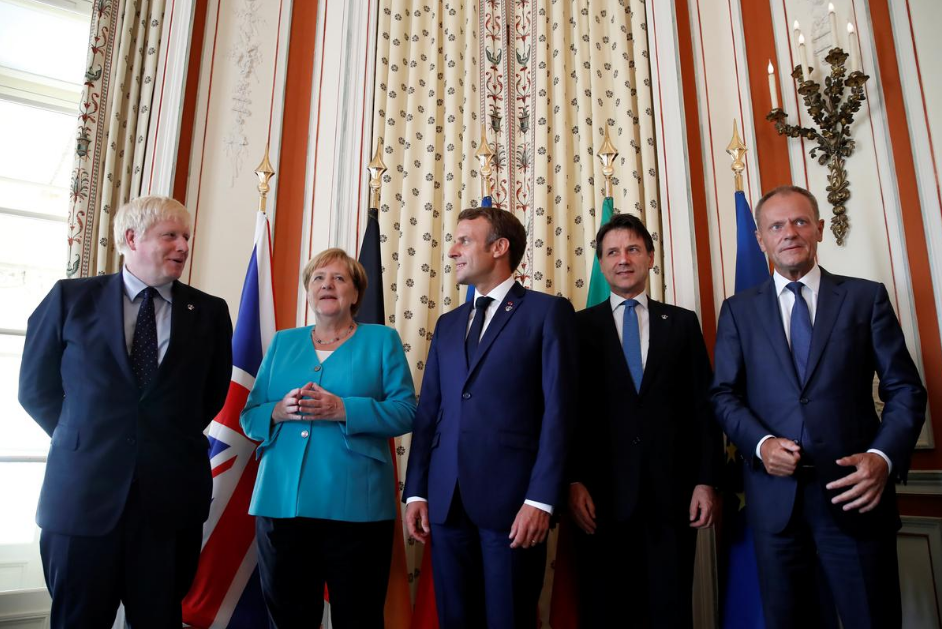
French President Emmanuel Macron and European Council President Donald Tusk pose with G7 European members Britain's Prime Minister Boris Johnson, German Chancellor Angela Merkel and Italy's acting Prime Minister Giuseppe Conte during the G7 summit in Biarritz, France, August 25, 2019. /Reuters Photo
Mediation efforts
European leaders have struggled to tamp down the brewing confrontation between Iran and the U.S. since Trump pulled his country out of Iran's internationally-brokered 2015 nuclear deal and reimposed sanctions on the Iranian economy.
Macron, who has pushed mediation efforts in recent weeks to avoid a collapse of the nuclear deal, met Iranian Foreign Minister Zarif on Friday, who has just arrived in Biarritz.
The aim was to discuss proposals that could ease the crisis, including the idea of reducing some U.S. sanctions or providing Iran with an economic compensation mechanism.
In response to tougher U.S. sanctions and what it says is the inability of European powers party to the deal – France, Britain and Germany, to compensate it for its lost oil revenue, Tehran has responded with a series of moves, including retreating from some of its commitments to limit its nuclear activity made under the deal.
The U.S. has made no indication it will ease any sanctions and it is unclear what kind of compensation mechanism Macron wants to offer Iran given that, at this stage, a proposed trade channel for humanitarian and food exchanges with Iran is still not operational.
Macron has also said that, in return for any concessions, he would expect Iran to fully comply with the nuclear deal and engage in new negotiations that would include its ballistic missile program and regional activities.
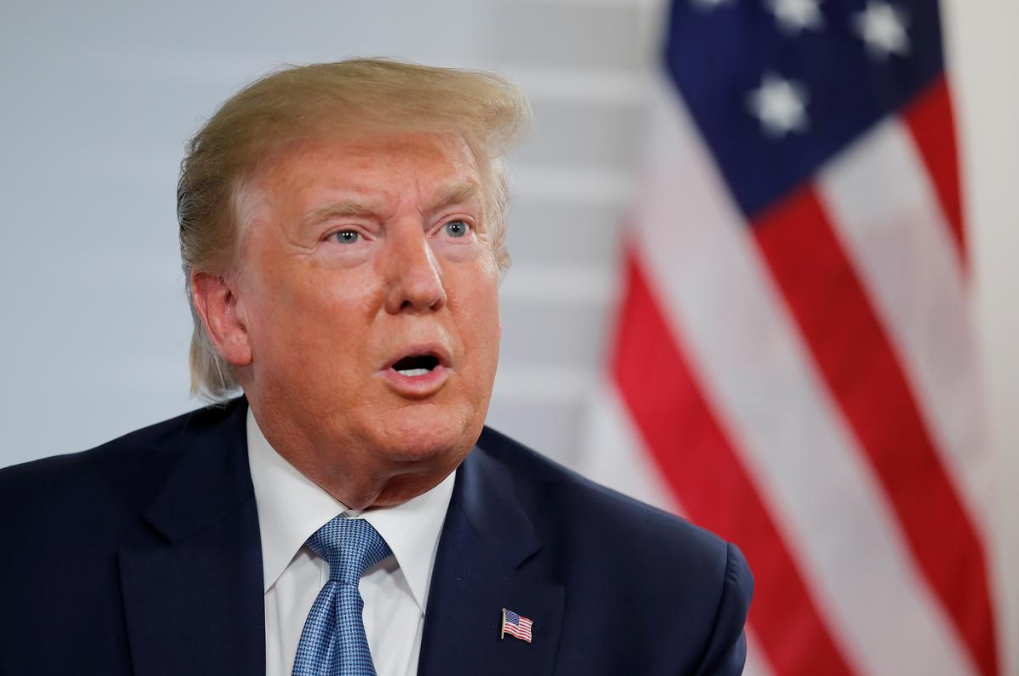
U.S. President Donald Trump speaks as he attends a bilateral meeting with Japan's Prime Minister Shinzo Abe (not pictured) during the G7 summit in Biarritz, France, August 25, 2019. /Reuters Photo
Trump dampens Macron optimism on Iran talks
However, Trump, who has pushed a maximum pressure policy on Iran, distanced himself from the proposal, saying while he was happy for France to reach out to Tehran, he would carry on with his own initiatives.
Asked if he had signed off on the statement that Macron intends to give on behalf of the G7 on Iran, Trump said: "I haven't discussed this. No I haven't." He also told reporters that Macron and Japanese Prime Minister Shinzo Abe were free to talk to Iran.
"We'll do our own outreach, but, you know, I can't stop people from talking. If they want to talk, they can talk."
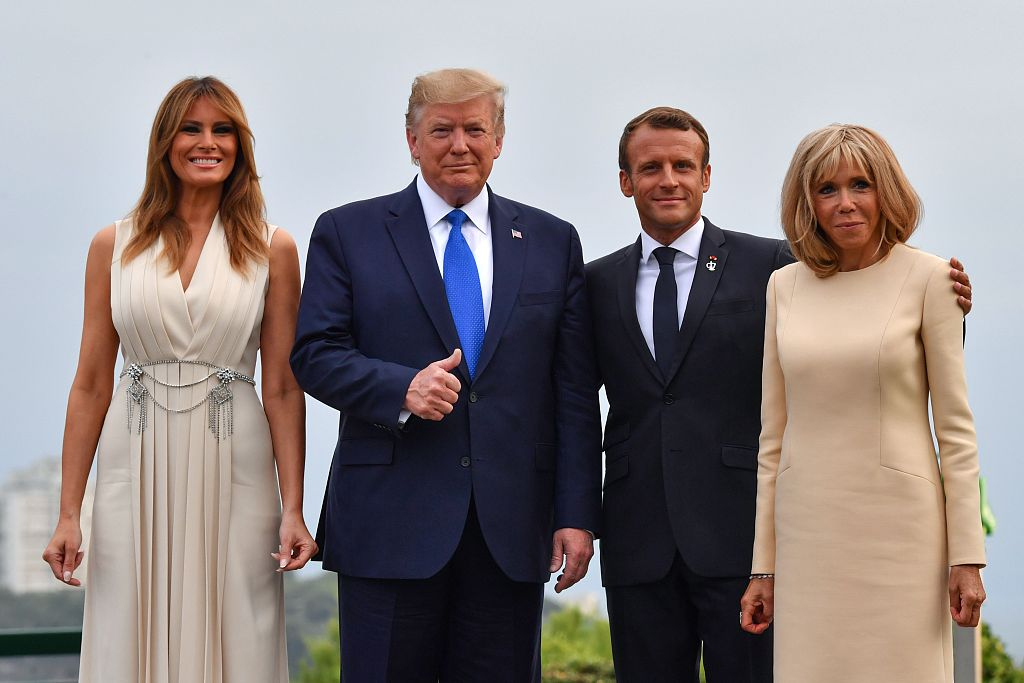
French President Emmanuel Macron (2nd, R) and his wife Brigitte Macron (R) pose with U.S. President Donald Trump (2nd, L) and U.S. First Lady Melania Trump at the Biarritz lighthouse, southwestern France, ahead of a working dinner on August 24, 2019. /VCG Photo
'Points of convergence' on trade, climate
Despite their divided approaches to Iran's nuclear issue, G7 leaders found major points of convergence on subjects, including trade and the wildfires consuming large parts of the Amazon forest.
On the trade front, where Trump has threatened retaliation over France's new levy on US tech giants, Macron told Trump that "there is no reason to spark a trade war over this," during an unscheduled two-hour lunch before the opening of the G7 summit on Saturday.
The leaders also found common ground on how to respond to the major fires across large swaths of the Amazon, after Macron accused Brazil's President Jair Bolsonaro of failing to do enough in the face of an "international crisis."
That drew a rebuke from Bolsonaro, who denounced what he called a "colonialist mentality."
"We are all agreed on helping those countries which have been hit by the fires as fast as possible," Macron told reporters on Sunday.
Although about 60 percent of the Amazon is in Brazil, the vast forest also takes in parts of eight other countries: Bolivia, Colombia, Ecuador, French Guiana, Guyana, Peru, Suriname, and Venezuela.
"This morning, Colombia called on the international community (to help), so we must help out," he said. "Our teams are making contact with all the Amazon countries so we can finalize some very concrete commitments involving technical resources and funding."

Copyright © 2018 CGTN. Beijing ICP prepared NO.16065310-3
Copyright © 2018 CGTN. Beijing ICP prepared NO.16065310-3